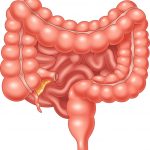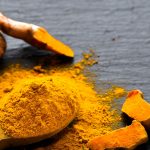 The majority of Americans older than 40 or 50 years of age live highly stressful lives. They tend to use at least one type of stimulant on a daily basis and generally have at least one major health problem. In many instances, these illnesses, syndromes and conditions are subclinical, meaning they smolder under the surface for many years before they are recognized. Although Americans are now expected to live beyond 75 years of age, in the 21st century this is largely due to advances in the prevention of premature death.
The majority of Americans older than 40 or 50 years of age live highly stressful lives. They tend to use at least one type of stimulant on a daily basis and generally have at least one major health problem. In many instances, these illnesses, syndromes and conditions are subclinical, meaning they smolder under the surface for many years before they are recognized. Although Americans are now expected to live beyond 75 years of age, in the 21st century this is largely due to advances in the prevention of premature death.
Age-regulated energy dysfunction is directly related to endocrine maladaptation, diminished output, hormone misdirection (too much of one hormone and not enough of another) and/or hormone resistance. This is the major reason there are so few professional athletes older than age 35, and why adults tend to inherit increased waistlines while muscle mass decreases. Testosterone, DHEA, growth hormone and estrogen are central to endocrine balance. In this article, we will focus on testosterone.
Essential for Anabolic Metabolism and General Health
Testosterone is an essential hormone for health. Maintaining healthy testosterone levels is vitally important to physical strength (Wang et al., 1996, 2000; Urban et al., 1995). It is known to increase de novo protein synthesis as well as muscle mass (Urban et al., 1995; Tenover, 1999; Bhasin et al., 1997), and is important for the regulation of muscle-to-fat ratio. Enhancing testosterone in older people can lead to a reduction in body fat, particularly visceral body fat (Marin, 1995), which is an important determining factor to health and lifespan. Enhancement of testosterone increases libido in men (Katznelson et al., 1996; Anderson et al., 1992) and libido and sexual performance in hypogonadal men (Morales et al., 1997; Snyder et al., 2000; Salmimies et al., 1982). Testosterone also possesses an antidepressant effect, as evidenced by improved mood and a greater sense of well-being in both hypogonadal (Wang et al., 1996) and older men (Basaria and Dobs, 1999; Barrett-Connor, 1999).
Essential and Often Overlooked in Cardiovascular Health
Higher endogenous testosterone has been correlated in many studies with a reduction in a number of cardiovascular risk factors such as blood pressure, total cholesterol (TC), LDL-cholesterol (LDL), triglycerides (TG), visceral body fat, waist-hip ratio (WHR), serum insulin, fasting and post-prandial glucose, higher HDL-cholesterol (HDL) and greater insulin sensitivity (Snyder et al., 2000; Salmimies et al., 1981; Wang et al., 1996; Basaria and Dobs, 1999; Barrett-Connor et al., 1999; Malkin et al., 2003).
Maintaining healthy testosterone levels is, in fact, an important treatment for heart disease. The newest findings on testosterone and heart disease are very exciting. Evidence shows that testosterone actually dilates the coronary arteries, improving blood flow to the heart. This alone could explain the earlier finding that testosterone diminishes or eliminates angina. Also, increased risk of atherosclerosis in men has correlated with low androgen levels, according to other recent studies (Dobrzycki et al., 2003; Rosano et al., 2007; Tivesten et al., 2006; Muller et al., 2004; Gyllenborg et al., 2001; Dunajska et al., 2004).
A consistent finding in the scientific literature is that obese men have low testosterone and very high estrogen levels. Central or visceral obesity is recognized as a risk factor for cardiovascular disease and Type II diabetes. Normalizing testosterone levels not only helps to prevent diabetes, it actually may be an important treatment for diabetes. Boosting testosterone levels decreases abdominal fat mass, reverses glucose intolerance and reduces lipoprotein abnormalities in the serum. Further analysis has also disclosed a regulatory role for testosterone in counteracting visceral fat accumulation: “Longitudinal epidemiological data demonstrates that relatively low testosterone levels are a risk factor for development of visceral obesity” (Rosano et al., 2007; Tivesten et al., 2006; Gyllenborg et al., 2001; Dunajska et al., 2004).
Low testosterone coupled with high estrogen causes an increase in fat storage (although in the case of polycystic ovary syndrome, it is insulin that is causing the ovaries to produce testosterone). Studies have found that obese males have markedly reduced serum testosterone levels. This is partly due to a reduction in sex hormone-binding globulin (SHBG), which can cause peripheral conversion of testosterone to estradiol, which can then cause fat accumulation and lean muscle loss. SHBG is also critically important for proper insulin control, and for the control of estrogen. A reduction in SHBG is associated with hyperinsulinism, insulin resistance and an increased risk of heart disease and certain cancers. Low plasma levels of SHBG are associated with coronary heart disease (CHD) in women independently of insulin, obesity markers and dyslipidemia (Reinecke et al., 2002).
Elevated circulating estrogens and androgens, and decreased SHBG, are associated with the risk of endometrial cancer. Risk of endometrial cancer is also elevated with increasing levels of C-peptide (as a marker of pancreatic insulin secretion), and women with levels in the highest quintile had more than four-fold greater risk than women from the lowest quintile (Lukanova, n.d.).
Testosterone is also important for inhibiting the production of amyloid plaque, an inflammatory buildup of plaque in the brain associated with Alzheimer’s disease (Weill-Engerer et al., 2003; Almeida et al., 2004; Rothenberg et al., 2007). Thus, maintenance or enhancement of testosterone with herbs and natural compounds, as opposed to steroid drugs, can also have a very important role in preventing Alzheimer’s disease.
Testosterone’s Role in Muscle Mass
Older men with low testosterone levels who have been treated with testosterone supplementation displayed an increase in fat-free body mass and increases in muscle size and strength (Urban et al., 1995). With these two facts in mind, researchers have begun to examine the effects of testosterone supplementation on muscle mass in the elderly, and initial reports have been quite positive.
One of the first studies, performed in 1995, showed a measurable increase in skeletal muscle protein synthesis and muscle strength in six men (age 64 to 69) with low testosterone levels who received testosterone supplemention (Urban et al., 1995). A more recent study examined the effects of testosterone supplementation on ten men, 60 to 78 years in age, in a double-blind trial. The results showed that testosterone supplementation increased fat-free mass, improved exercise endurance time and improved balance (Brill et al., 2002).
A longitudinal study of 102 healthy, middle-aged men demonstrated that an undesirable decrease in overall health was associated with significantly increased serum prolactin and decreased serum testosterone. Poorer health and increased levels of prolactin were significantly associated with increased vital exhaustion (Halford et al., 2003).
High Testosterone can be Problematic
High testosterone can be problematic as well. It can cause general aggressive behavior, and could also lead to cancer. Some studies suggest that a high level of serum free testosterone is associated with an increased risk of prostate cancer. Free testosterone, which is biologically active and can actually be used by the prostate, was found to be associated with increased prostate cancer risk, according to J. Kellogg Parsons, MD, instructor of urology at the Brady Urological Institute at Johns Hopkins and lead researcher of the study (Parsons et al., 2005).
Paradoxical Effects of Androgens and Prostate Cancer
Testosterone levels decrease with age, and while elderly men present a partial androgen deficiency, prostate cancer increases with age. The evolution of androgen deficiency has been estimated to be 16.2% in men 40-49 years, 20% in men 50-59 years, 22.6% in men 60-69 years and 26% in men 80 years and older. Testosterone deficiency is associated with multiple deregulations that can lead to symptoms such as decreased libido, loss of muscle mass, osteoporosis, decreased cognitive ability and depression (Algarte-Genin et al., 2004).
Clinical studies have shown that a low serum level of free testosterone is associated with aggressive prostate cancer. This data suggests that an androgen pathway disruption in the prostate is responsible for cell deregulations that may be associated not only with apoptosis of differentiated prostatic cells, but also with potential cell transformation. However with time, cells adapt to low levels of androgens, which can lead to the evolution of an androgen-independent tumor, which is more aggressive and most often fatal (Algarte-Genin et al., 2004).
One leading hypothesis is that such mechanisms could be initiated in elderly men with an androgen deficiency; and perhaps through the use of botanical adaptogens and specific endocrine enhancers, prostate cancer could be prevented.
Raising and Balancing Testosterone Levels
It is clear that ideal levels of testosterone are of great importance in both men and women for every aspect of health, and because low testosterone increases one’s risk of heart disease, obesity, diabetes and other age-related diseases, it is important in our aging patients to restore testosterone levels back to youthful levels. The question remains whether to rely on supplementing with bio-identical testosterone or to build the levels of testosterone using endocrine-enhancing adaptogenic herbs.
We believe that with the use of endocrine-enhancing adaptogens and other specific herbal agents, one can gently enhance the “whole” or “root” energy of the entire endocrine and nervous system, thereby enabling and supporting optimal hormone balance. Adaptogens also alleviate the stress hormone response and increase the body’s natural abilities to adapt. As nonspecific regulators, endocrine-enhancing adaptogens can aid in normalizing hormones and maintaining healthy testosterone levels. However, they will not affect testosterone levels if they are already normal and will shift their focus to assist in some other area of imbalance. If everything is in balance, they will work to build adaptive energy reserve.
Supplementation with primary, and many secondary, testosterone-enhancing adaptogens can assist naturally in enhancing testosterone levels and returning them to a healthy normal range. Rhaponticum carthamoides, pantocrin, Epimedium, Tribulus terrestris and Eurycoma longifolia Jack are particularly effective for helping to raise testosterone levels. Some of the more specific herbs to use for testosterone deficiency may include: Tribulus terrestris, Eurycoma longifolia Jack and Epimedium extract. Many herbs such as Pygeum, Serenoa repens, and Panax ginseng are known as “male tonic” herbs.
Optimal hormone balance is important for every aspect of health, and with herbal and nutritional medicine, we can achieve this in a gentle, harmonious way. In our opinion, quick fixes are not the answer, and it is necessary to understand that what has taken a long time to get out of balance is going to take some time to get back into balance. A person will be happier and healthier for years to come by applying this information to his or her life.
Dicken Weatherby, ND is based in southern Oregon. A graduate of NCNM, Dicken is co-author of the bestselling book Blood Chemistry and CBC Analysis-Clinical Laboratory Testing from a Functional Perspective. He has self-published seven other books in the field of alternative medical diagnosis, has created numerous information products, and runs a number of successful Web sites (www.BloodChemistryAnalysis.com, www.Health-E-Marketing.com and www.StrawBale.com). He is involved in research, writing and consulting, and teaches functional diagnosis seminars in both the U.S. and his native country, the U.K.
Donald R. Yance, CN, MH, RH is an internationally known herbalist and nutritionist. He is the founder and medical director of the Centre for Natural Healing in Ashland, Ore. Through extensive research and clinical practice, he has developed his Triphasic system, which forms the cornerstone of his clinical approach. Donald is the founder and formulator of Natura Health Products, and founder and president of The Mederi Foundation, whose programs promote health education and clinical research on the use of natural medicine, with an emphasis in the field of integrative oncology.
References
Wang C et al: Sublingual testosterone replacement improves muscle mass and strength, decreases bone resorption, and increases bone formation markers in hypogonadal men – a clinical research center study, J Clin Endocrinol Metab Oct;81(10):3654-62, 1996.
Wang C et al: Transdermal testosterone gel improves sexual function, mood, muscle strength, and body composition parameters in hypogonadal men, J Clin Endocrinol Metab Aug;85(8):2839-53, 2000.
Urban RJ et al: Testosterone administration to elderly men increases skeletal muscle strength and protein synthesis, Am J Physiol Nov; 269(5 Pt 1):E820-6, 1995.
Tenover JL: Experience with testosterone replacement in the elderly. Symposium on testosterone replacement in elderly men. Palm Springs, March 18-20, 1999. Accessed 06/26/08. http://www.medaus.com/p/92,269.html.
Bhasin S et al: Testosterone replacement increases fat-free mass and muscle size in hypogonadal men, J Clin Endocrinol Metab Feb;82(2):407-13, 1997.
Marin P: Testosterone and regional fat distribution, Obesity Research 3(Suppl 4):609S-612S, 1995.
Katznelson L et al: Increase in bone density and lean body mass during testosterone administration in men with acquired hypogonadism, J Clin Endocrinol Metab Dec; 81(12):4358-65, 1996.
Anderson RA et al: The effects of exogenous testosterone on sexuality and mood of normal men, J Clin Endocrinol Metab Dec;75(6):1503-7, 1992.
Morales A et al: Testosterone supplementation for hypogonadal impotence: assessment of biochemical measures and therapeutic outcomes, J Urol 57:849-54, 1997.
Snyder PJ et al: Effects of testosterone replacement in hypogonadal men, J Clin Endocrinol Metab Aug; 85(8):2670-7, 2000.
Salmimies P et al: Effects of testosterone replacement on sexual behavior in hypogonadal men, Arch Sex Behav Aug; 11(4):345-53, 1982.
Wang C et al: Testosterone replacement therapy improves mood in hypogonadal men – a clinical research center study, J Clin Endocrinol Metab Oct; 81(10):3578-83, 1996.
Basaria S and Dobs A: Risks versus benefits of testosterone therapy in elderly men, Drugs & Aging 15(2):131-42, 1999.
Barrett-Connor E et al: Bioavailable testosterone and depressed mood in older men: the Rancho Bernardo Study, J Clin Endocrinol Metab Feb;84(2):573-7, 1999.
Malkin CJ et al: Testosterone as a protective factor against atherosclerosis–immunomodulation and influence upon plaque development and stability, J Endocrinol Sep; 178(3):373-80, 2003.
Dobrzycki S et al: An assessment of correlations between endogenous sex hormone levels and the extensiveness of coronary heart disease and the ejection fraction of the left ventricle in males, J Med Invest Aug;50(3-4):162-9, 2003.
Rosano GM et al: Low testosterone levels are associated with coronary artery disease in male patients with angina, Int J Impot Res Mar-Apr;19(2):176-82, 2007.
Tivesten A et al: Circulating estradiol is an independent predictor of progression of carotid artery intima-media thickness in middle-aged men, J Clin Endocrinol Metab Nov;91(11):4433-7, 2006.
Muller M et al: Endogenous sex hormones and progression of carotid atherosclerosis in elderly men, Circulation May 4;109(17):2074-9, 2004.
Gyllenborg J et al: Cardiovascular risk factors in men: The role of gonadal steroids and sex hormone-binding globulin, Metabolism Aug;50(8):882-8, 2001.
Dunajska K et al: Evaluation of sex hormone levels and some metabolic factors in men with coronary atherosclerosis, Aging Male Sep;7(3):197-204, 2004.
Reinecke H et al: Relation of serum levels of sex hormone binding globulin to coronary heart disease in postmenopausal women, Am J Cardiol Aug 15;90(4):364-8, 2002.
Lukanova A: Endogenous hormones in the etiology of ovarian and endometrial cancers, Doctoral thesis. Accessed 06/27/08. http://www.diva-portal.org/umu/abstract.xsql?dbid=215.
Weill-Engerer S et al: In vitro metabolism of dehydroepiandrosterone (DHEA) to 7alpha-hydroxy-DHEA and Delta5-androstene-3beta,17beta-diol in specific regions of the aging brain from Alzheimer’s and non-demented patients, Brain Res Apr 18;969(1-2):117-25, 2003.
Almeida OP et al: One year follow-up study of the association between chemical castration, sex hormones, beta-amyloid, memory and depression in men, Psychoneuroendocrinology Sep;29(8):1071-81, 2004.
Rothenberg R et al: Forever Ageless. 1st ed. Encinitas, CA: California HealthSpan Institute; 2007.
Brill KT et al: Single and combined effects of growth hormone and testosterone administration on measures of body composition, physical performance, mood, sexual function, bone turnover, and muscle gene expression in healthy, older men, Jour Clin Endo Metab 87(12);5649-57, 2002.
Halford C et al: Endocrine measures of stress and self-rated health: a longitudinal study, J Psychosom Res Oct;55(4):317-20, 2003.
Parsons JK et al: Serum testosterone and the risk of prostate cancer: potential implications for testosterone therapy, Cancer Epidemiol Biomarkers Prev Sep;14(9):2257-60, 2005.
Algarte-Genin M et al: Prevention of prostate cancer by androgens: experimental paradox or clinical reality, Eur Urol Sep;46(3):285-94, 2004.




